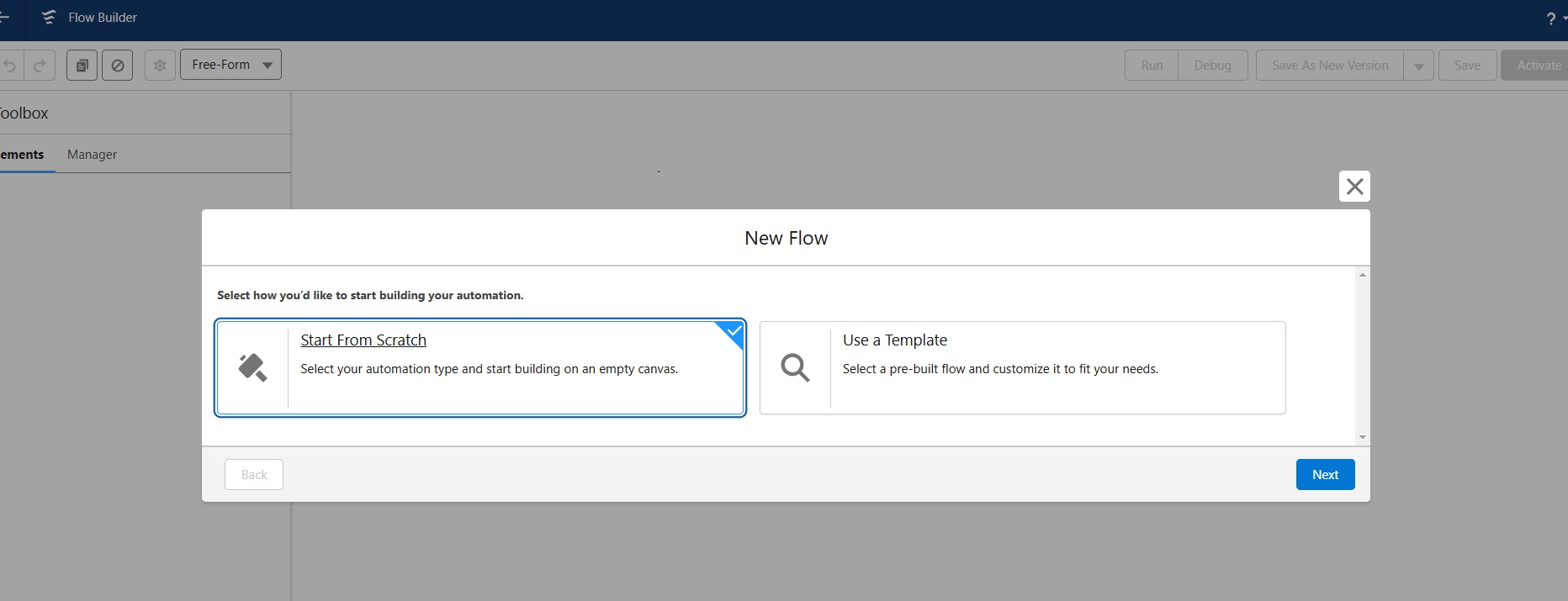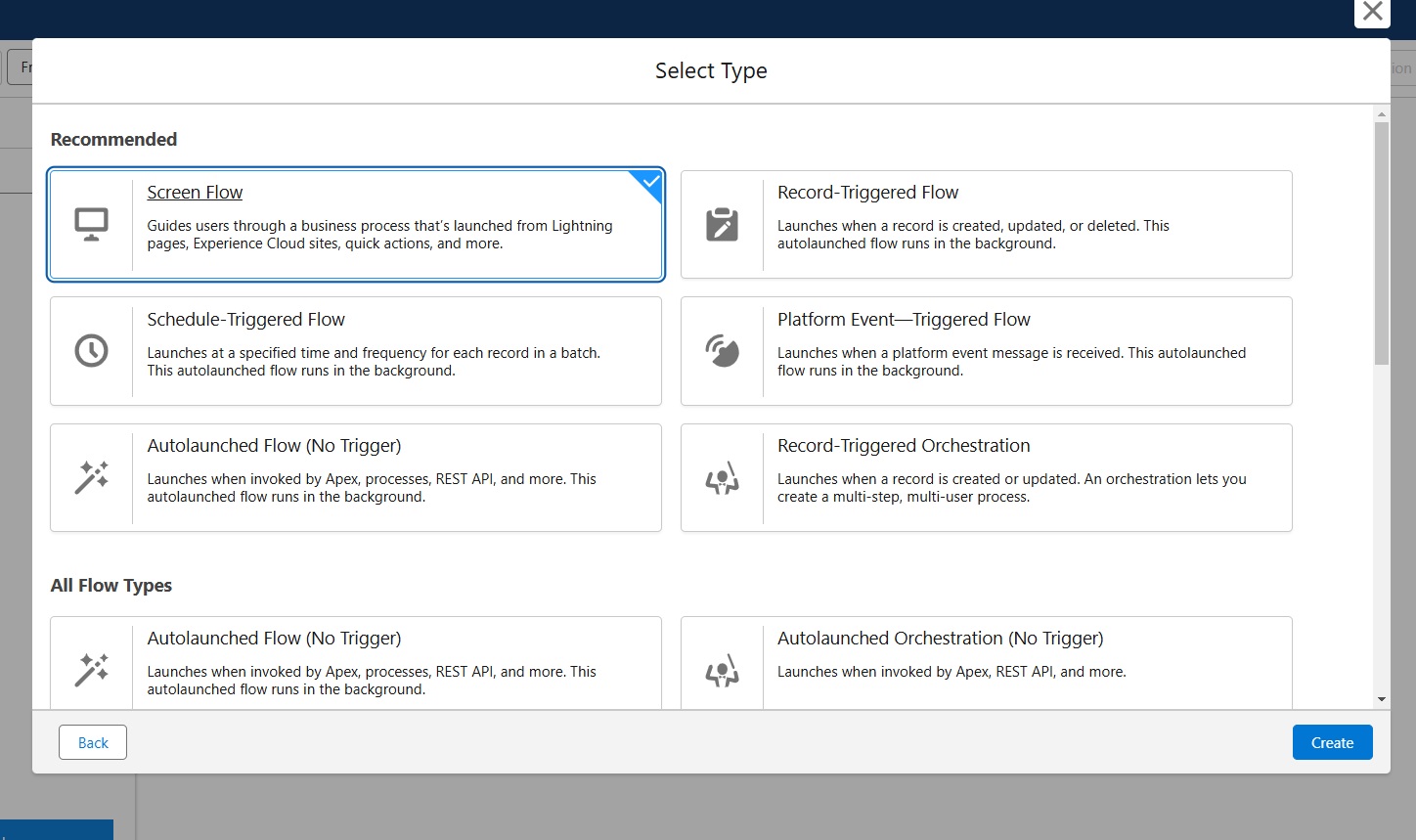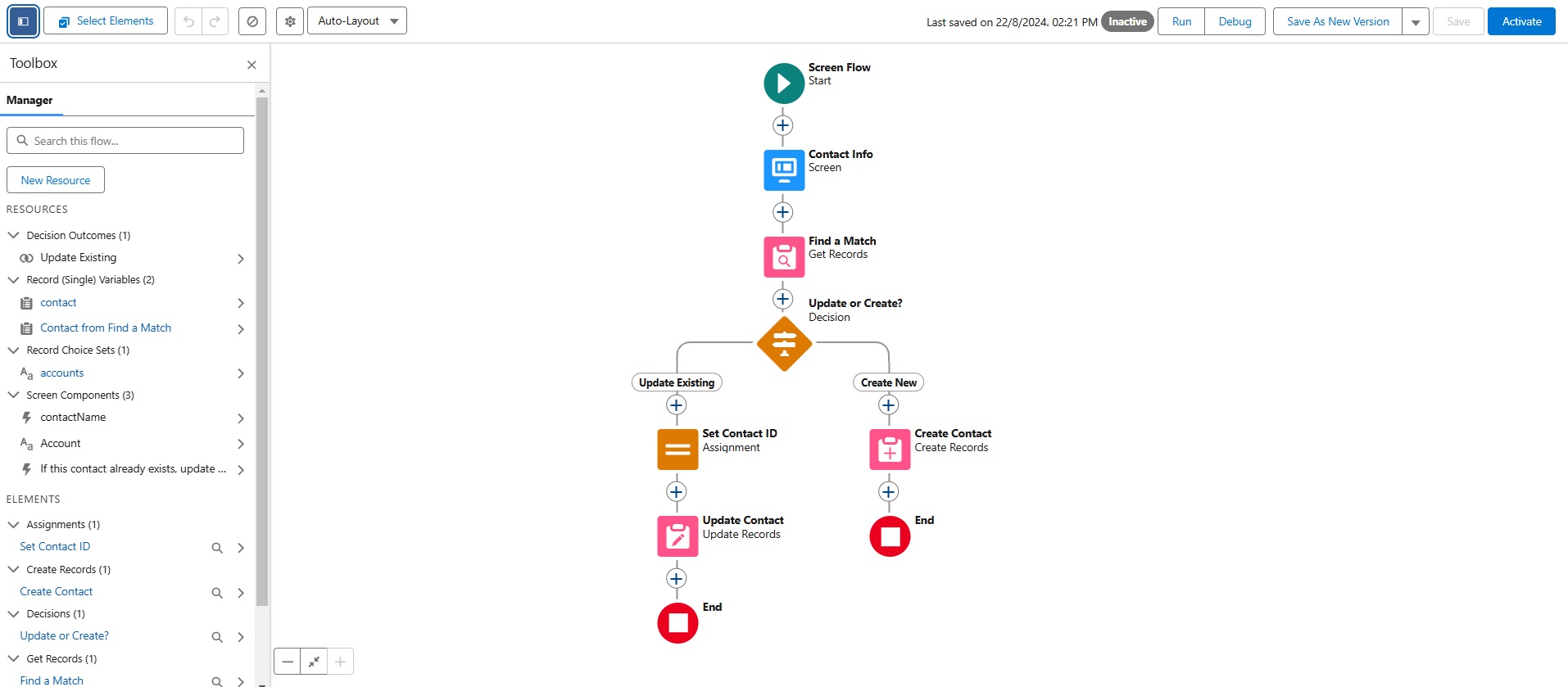
It’s very important to stay organized and productive if you want to succeed in today’s fast paced business world. However, many users still spend too much time creating tasks manually which slows down progress and leads to missed deadlines.
This is where Salesforce comes into action. This powerful CRM tool that can help teams manage their tasks more efficiently. You can automate task creation in Salesforce to save time and can focus on what really matters: building relationships and closing deals.
Let’s discuss how to set up Salesforce automated tasks creation and improve your team's workflow!
Admins familiar with Flow Builder can enhance task functionality through screen flows and auto launched flows. Screen flows are best for user input and allow users to provide or edit information through forms. In contrast, auto launched flows automate processes such as checking and updating records or sending surveys based on specific field values.
Flow Builder in Salesforce is a powerful tool that allows you to create simple or complex automations, forms, and guided user experiences with little to no coding. This flexibility means you can tailor the functionalities to meet your specific needs and seamlessly integrate them into the Salesforce app, experience, or portal.
Step 1: Open Flow Builder
Go to Setup and enter Flows in the Quick Find box. Select Flows, then click on New Flow.

Step 2: Start From Scratch
Choose the option to Start From Scratch and click Next.

Step 3: Select Flow Type
Choose the type of flow you want to create, then click Create.

Step 4: Add Elements
Use the canvas to add the elements you need for your flow which can include actions, screens and other components.

Step 5: Connect Elements
Manually connect the elements to define their order of execution you’re building in free-form. On the other hand, connectors are automatically created on the canvas in auto layout.
.jpeg)
.jpeg)
Step 6: Save Your Flow
Once you have set up your flow, save it so the work isn’t lost.

Step 7: Test Your Flow
Now run tests to confirm that the flow works as intended. This will help you troubleshoot any issues before deployment.
.jpeg)
.jpeg)
Step 8: Activate Your Flow
Once testing is complete you can activate your flow and make it available for use.

Here are ten big benefits of automating tasks in Salesforce:
People do not have to do tasks by hand when they are automated. This avoids repetition and gets the work done faster which saves a lot of time. For example, sending thousands of emails a day can be done automatically.
Of course, to err is human so any of your employees can make mistakes as well. But automation protects your business from the loss of manual errors. For example, a system does not forget or mix up dates when sending out reminders.
Your customers get better service when tasks are automated. Automated responses handle frequently asked questions and speeds up the complaint process. This makes customers happy because they get quick assistance.
Your workers won’t waste time on simple or routine tasks if you automate them. Instead, they can spend time on important projects and concentrate on higher value activities. For example, sales representatives can spend more time closing clients and less time entering data. This shift increases overall productivity within the organization.
Automation helps create a standard way of doing things because every task is done the same way every time. This standardization and consistency maintains quality and makes it easier for teams to work together.
You can gather data on sales and tasks automatically which helps track how well things are going. This means that managers can access real-time insights about sales, customer interactions and marketing efforts. By tracking performance companies can adapt quickly to changing market conditions.
No one forgets to follow up with leads or customers with automated reminders. This helps close more sales because everyone stays in touch. Salesforce can automatically send follow-up emails to leads with abandoned carts.
Generating reports can be a tedious process if done manually. That’s why automating tasks makes reporting much easier for managers. For example, Salesforce creates monthly performance reports of key metrics like conversion rates. This allows you to focus on analyzing the data rather than spending hours collecting it.
Salesforce provides many customization options and flexibility in automation. So, each business can set up a system to automate tasks that matter most to them. This customization allows organizations to optimize workflows according to the challenges they face.
Automating tasks can save money in the long run. While there may be an initial investment in setting up automated systems, increased efficiency and reduced labor costs lead to much higher savings. This way you can allocate resources more effectively and maintain healthy profit margins.
PixelConsulting is here to help if you're considering using Salesforce to automate your tasks. Our team can guide you in setting up Salesforce to meet your unique needs. Let us help you make your business more productive!
Read Also : Common Challenges in Salesforce User Adoption